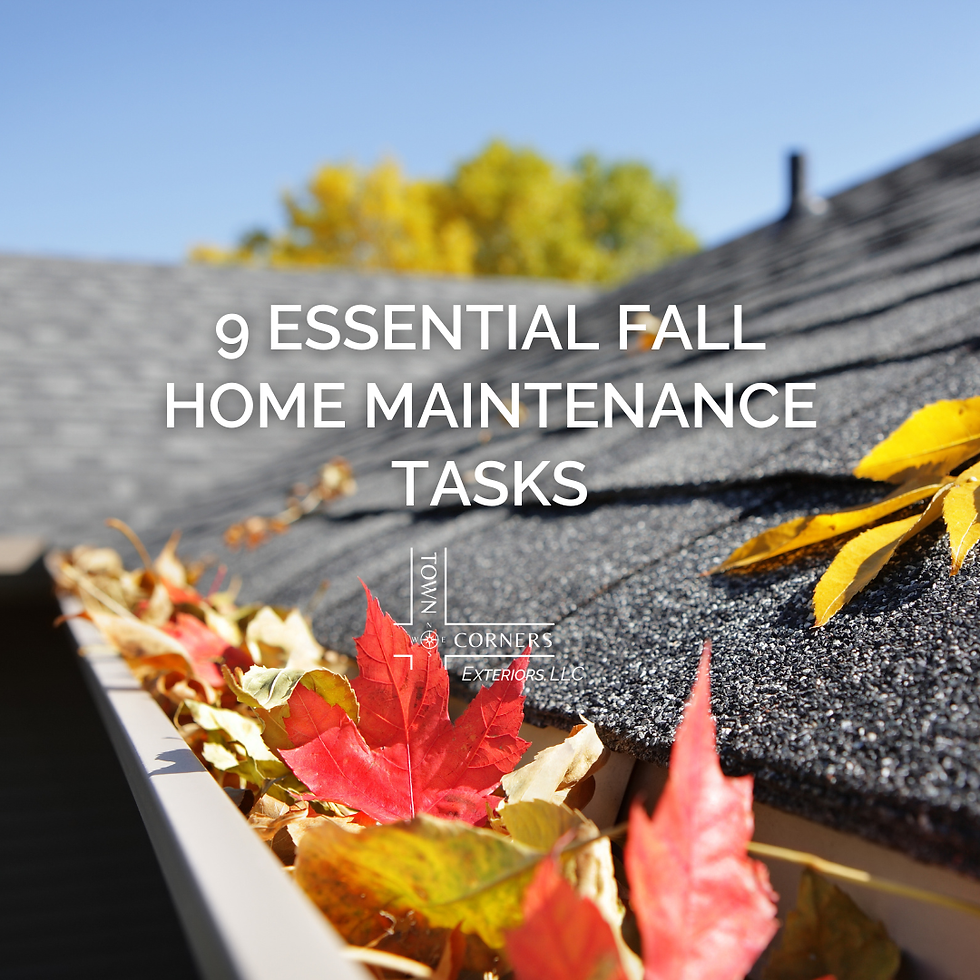How West Michigan’s Winters Damage Your Roof
- Rebecca Garza
- Jan 8, 2025
- 3 min read

What’s up with all this water damage in the Winter? It probably has to do with your roof.
In the season of frigid temperatures and inclement weather, roofs go through a lot. Use this guide to learn how to maintain your roof during Winter and prevent further deterioration.
Inspecting the Wreckage
There are plenty of visible signs that Winter weather is hurting your roof; look for the following:
Layers of packed snow
Cracked or separated flashing
Shingle granules in the gutter
Loose, dented, or fallen gutters
Missing, curling, or lifting shingles
Wet spots or dripping on the ceiling
Sticky doors and cracked drywall, which indicate structural distress
Ice dams
Read on to see how and when you can take snow, ice, and wind yourself!
Snow and Ice
The first issue with snow and ice is that it puts a lot of pressure on your roof. This is dangerous for your home's structure. They can melt within layers of your roof, causing blisters. When ice accumulates, it causes cracks to expand. If this goes unnoticed, it will reduce the lifespan of your roof.
So how can you prevent this? With a roof rake! Starting in the area with the most snow, place the rake three feet above the eave. Then, gently rake the snow towards you until it falls off the edge. Work your way along the edge of the roof. Then, move the rake six feet up and start over. Repeat this process until you can’t go any higher.
Ice Dams
Ice dams cause those pretty little icicles drooping from your roof. Unfortunately, they’re a significant hazard. Ice dams and Icicles can fall on your visitors, rip off the eaves, and deteriorate shingles and decking. They may also cause roof sags and leaks.
On your own, the only effective way to melt the ice is chemical:
Fill a nylon pantyhose stocking with calcium chloride.
Use a rake to place it perpendicular to the roof edge. The calcium chloride will melt a channel in the ice for water to drain off the roof.
You can purchase products like Roof Melt at your local hardware store for a less DIY method.
The long-term fix for ice dams is fixing the cause, which could be either poor insulation or insufficient ventilation. Ice dams are caused when warm air from your attic hits a cold ceiling beam near the roof’s edge. The melting snow running down from the roof’s apex then freezes as it tries to pass the chilled beam underneath, which causes an overflow of icicles and a backup of ice on your roof.
Wind
In West Michigan, harsh winds threaten homeowners with leaky roofs and injured gutters, shingles, and flashing.
Windy weather roof maintenance involves trimming surrounding trees that may fall in the gutters. The maintenance you may want to call in a roofer for would be replacing any rusted step flashing and cracked, rotted, or missing siding. The new pieces must overlap the step flashing by at least two inches. Additionally, you can use a putty knife to check the seal on your walls around doors and windows. If there is any faulty caulk, replace it.
If you need to replace just a few shingles, remove the seal, remove the nails, and take off the shingle. Then, put the new one in place. Hammer in the nails and seal the shingle. But, it may be best to have a thorough roof inspection in case the missing shingles you found are only part of a more significant unforeseen problem.
Now you know how to spot signs of winter roof damage and what you can do to prevent further damage. For persistent problems, it is best to inspect your roof for the cause, which, left unchecked, can result in disastrous outcomes. Simply call Town Corners Exteriors for a FREE inspection and estimate and get some peace of mind for this Winter and the ones to come!




Comments